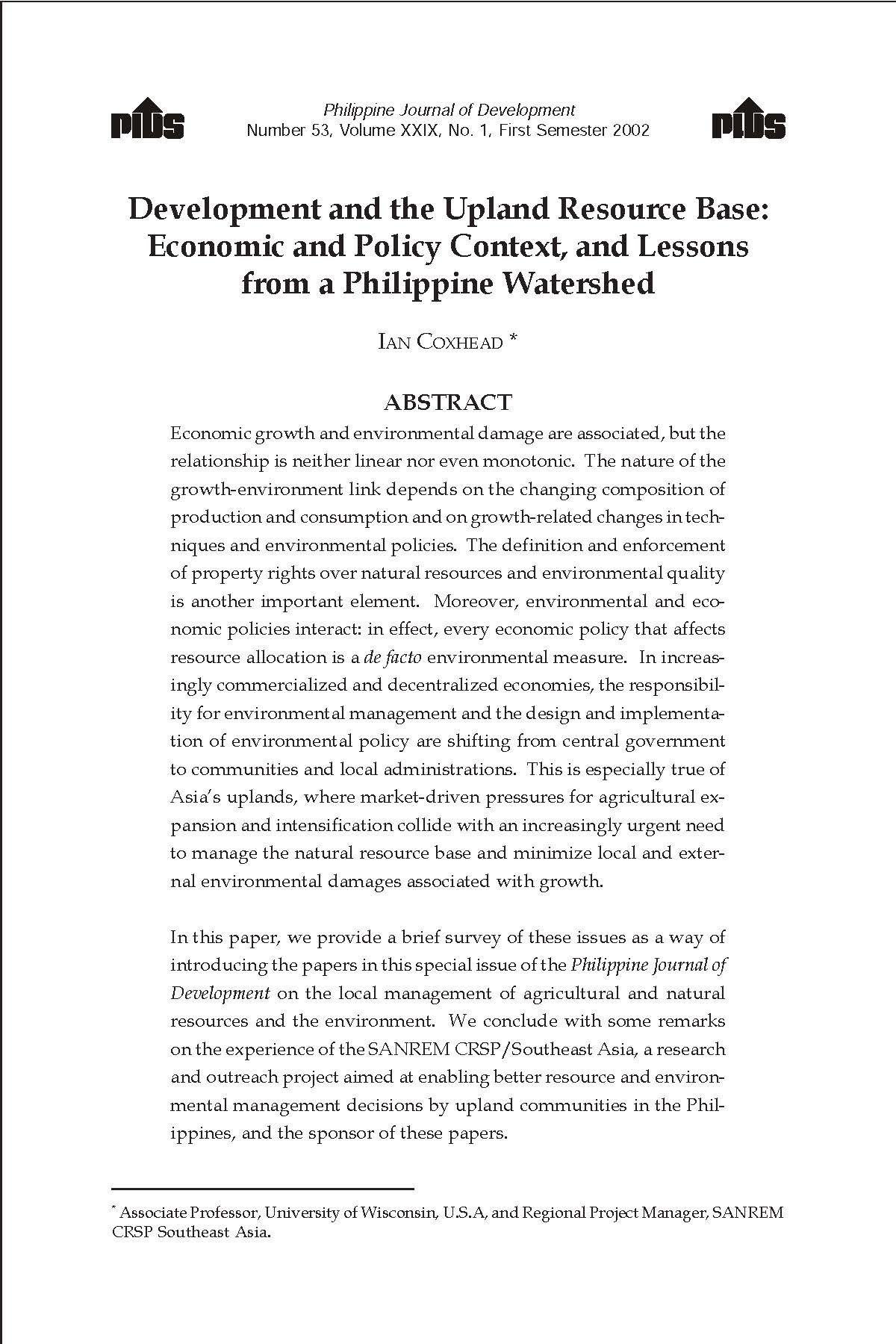Abstract
This issue explores the intersection of economic growth, environmental sustainability, and decentralized governance, with a focus on the Philippines’ upland communities. As environmental management shifts from central authorities to local governments and communities, the papers in this volume examine the challenges and opportunities in balancing agricultural expansion with responsible resource stewardship. One study assesses the effects of labor migration on upland agriculture, finding that while nonfarm employment can reduce land-degrading practices in the long run, targeted policies remain necessary to support sustainable land use. Another paper highlights how upland farmers in Mindanao have responded to deforestation and timber scarcity by shifting from annual crops to tree planting, demonstrating the potential for small-scale forestry to be both economically viable and environmentally beneficial. The volume evaluates policy approaches to sustainable upland farming, comparing local and national interventions and emphasizing the importance of coordinated efforts. It examines how environmental research influences policy and governance, drawing lessons from the SANREM-CRSP Southeast Asia project.
Articles
SHARE
